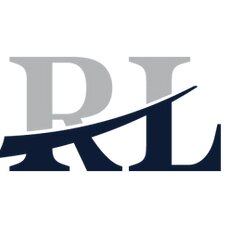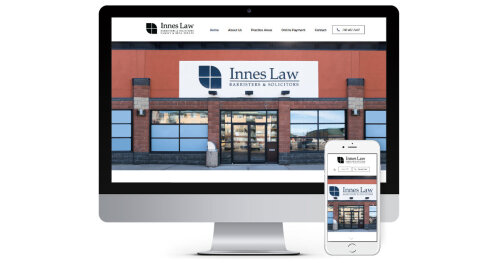Best Foreclosure Lawyers in Grande Prairie
Share your needs with us, get contacted by law firms.
Free. Takes 2 min.
Free Guide to Hiring a Real Estate Lawyer
List of the best lawyers in Grande Prairie, Canada
About Foreclosure Law in Grande Prairie, Canada
Foreclosure in Grande Prairie, Canada, refers to the legal process by which a lender attempts to recover the balance of a loan from a borrower who has stopped making payments. This process involves the sale of the property used as the collateral for the loan. Typically, foreclosures in Canada operate under judicial sale, where the lender must go to court to repossess a property. For residents of Grande Prairie facing foreclosure, understanding this process involves comprehending local laws, which can significantly impact how foreclosure proceedings unfold.
Why You May Need a Lawyer
There are several scenarios where an individual might benefit from legal guidance in foreclosure situations. A lawyer can help if you're struggling to make mortgage payments and want to understand your options, or if you've received a foreclosure notice and need advice on how to respond. Legal assistance is crucial for negotiating with lenders, understanding the complex legal jargon involved in foreclosure notices, and if necessary, representing your interests in court. Lawyers may also assist in pursuing alternatives to foreclosure, such as loan modifications or refinancing.
Local Laws Overview
Foreclosure laws in Alberta, under which Grande Prairie falls, are primarily governed by the Law of Property Act and the Civil Enforcement Act. Alberta permits both judicial foreclosure, where the courts are involved, and non-judicial foreclosure, although the former is much more common. The process starts with a Statement of Claim, leading up to a court order for sale. Homeowners have redemption rights, which allow them to retain their property by paying off the owed amount before the sale is finalized. Understanding these processes is essential for anyone facing foreclosure in Grande Prairie.
Frequently Asked Questions
What is the first step if I receive a foreclosure notice?
Contact a lawyer immediately to understand your rights and options. They can help you negotiate with the lender and explore alternatives to foreclosure.
How long does the foreclosure process take in Grande Prairie?
It can vary, but judicial foreclosures may take between six months to a year, depending on court schedules and whether any disputes arise during proceedings.
Can I stop a foreclosure once it has started?
Yes, typically you can stop foreclosure by paying the arrears and costs up to the sale of the property, or by securing a court-approved arrangement with your lender.
What are my options if I cannot afford my mortgage payments?
Options include negotiating a payment plan with your lender, refinancing the mortgage, or selling the property. Consult a lawyer to explore these alternatives.
What is a redemption period?
The redemption period is the time frame you have to redeem your property by paying the total amount due, plus any additional costs. This period is set by the court based on circumstances.
Do I have to move out immediately if my home is foreclosed?
Not immediately. The timeline for vacating the property will be set by the court, and you typically have until the court officially orders the sale or assigns possession to the lender.
Can a foreclosure affect my credit score?
Yes, foreclosure can significantly impact your credit score, affecting your ability to secure loans or mortgages in the future.
Is it better to file for bankruptcy instead of facing foreclosure?
Filing for bankruptcy might stop the foreclosure briefly, allowing you time to reorganize your finances, but this decision should be made with legal counsel as it also has long-term financial implications.
Can a lawyer negotiate with the lender on my behalf?
Yes, lawyers can negotiate with lenders to modify loan terms or explore alternatives, such as short sales, to potentially avoid foreclosure.
What happens if my house sells for less than the mortgage amount?
You may still owe the difference, known as a deficiency. However, legal advice could help negotiate terms that might relieve you of this obligation.
Additional Resources
For more help, consider contacting the Grande Prairie Legal Guidance. The Alberta Mortgage Brokers Association can provide referrals to trusted brokers who may aid in refinancing. The Alberta Consumer Protection Office offers resources and advice for navigating financial difficulties, while Service Alberta can provide information on property law regulations.
Next Steps
If you require legal assistance with foreclosure proceedings, consider reaching out to a local lawyer specializing in real estate or foreclosure law. Start by scheduling a consultation to assess your situation and explore potential solutions. Additionally, gather all relevant documents, such as mortgage statements and any foreclosure notices, to provide your lawyer with a complete picture of your financial situation.
Lawzana helps you find the best lawyers and law firms in Grande Prairie through a curated and pre-screened list of qualified legal professionals. Our platform offers rankings and detailed profiles of attorneys and law firms, allowing you to compare based on practice areas, including Foreclosure, experience, and client feedback.
Each profile includes a description of the firm's areas of practice, client reviews, team members and partners, year of establishment, spoken languages, office locations, contact information, social media presence, and any published articles or resources. Most firms on our platform speak English and are experienced in both local and international legal matters.
Get a quote from top-rated law firms in Grande Prairie, Canada — quickly, securely, and without unnecessary hassle.
Disclaimer:
The information provided on this page is for general informational purposes only and does not constitute legal advice. While we strive to ensure the accuracy and relevance of the content, legal information may change over time, and interpretations of the law can vary. You should always consult with a qualified legal professional for advice specific to your situation.
We disclaim all liability for actions taken or not taken based on the content of this page. If you believe any information is incorrect or outdated, please contact us, and we will review and update it where appropriate.










